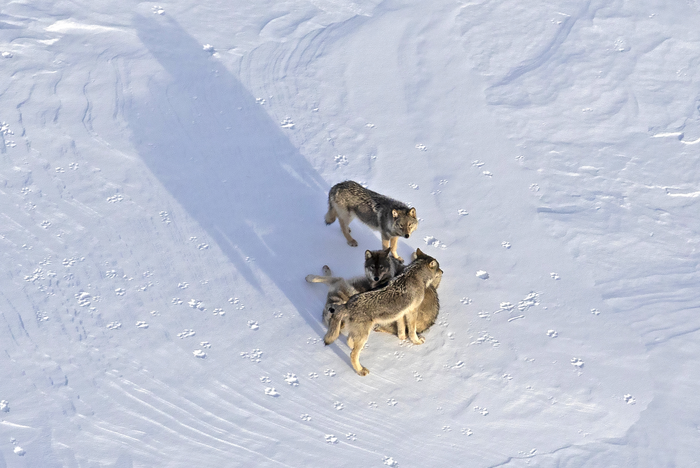Key findings include:

Credit: Sarah Hoy
Key findings include:
- A doubling of the wolf population, now estimated at 28 total wolves. “Each time we carried out aerial surveys this winter, we saw wolf tracks across many parts of the island and we also regularly saw groups of wolves traveling or resting together,” said Hoy. “It is such a pleasant change from five years ago when there were only two wolves on the island and the future of the wolf population looked pretty bleak. It just goes to show how quickly wolf populations are able to thrive in places where they are free from persecution.”
- A 28% decline in the moose population, from 1,876 to 1,346. Wolf kills accounted for 8.7% of the moose mortalities, the highest predation rate since 2011. Other challenges for the moose include blood-sucking winter ticks that weaken the animals, and spruce budworm infestations that kill balsam fir, their preferred winter food. “Over the past year we found an unusually high number of moose that appear to have died due to malnutrition,” Hoy said. “The population appears to be suffering from a food shortage, especially in winter when moose don’t have many good options of things to eat.”
For more information and to access the Winter Study report, read the full story at MTU News.
###
About Michigan Technological University
Michigan Technological University is a flagship technological public research university founded in 1885 in Houghton, Michigan. The University offers more than 125 undergraduate and graduate degree programs in science and technology, engineering, computing, forestry, business and economics, health professions, humanities, mathematics, social sciences, and the arts. The rural campus is situated just miles from Lake Superior in Michigan’s Upper Peninsula and is home to more than 7,000 students.
Method of Research
Observational study
Subject of Research
Animals
Article Title
Ecological Studies of Wolves on Isle Royale
Article Publication Date
24-Aug-2022



